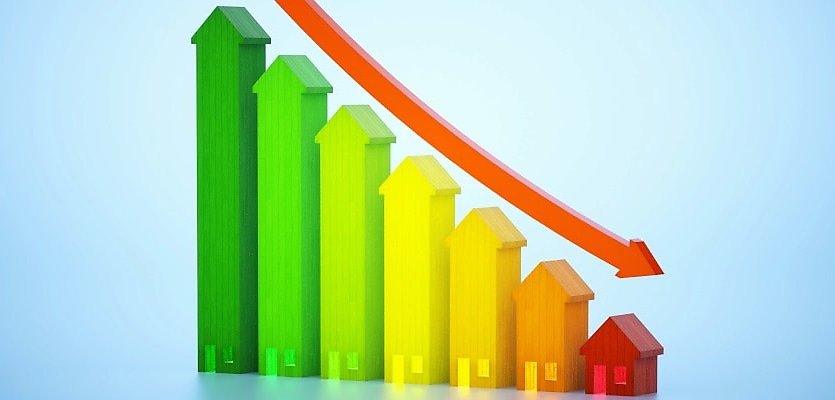Apartment prices across the east coast of Australia are expected to decline by up to 8 per cent by the end of 2019, the results of a new survey have shown.
According to finder.com.au’s latest RBA cash rate survey, economists expect a further 8.4 per cent drop, or $59,906 value fall, in apartment prices in Sydney by the end of 2019, while Melbourne apartments are predicted to be 7.1 per cent, or $38,163, cheaper.
Economists foresee house prices in Sydney and Melbourne to fall by 5.81 per cent (or $53,620) and 4.6 per cent (or $33,350), respectively.
Declines in property prices are also expected in Brisbane and Perth, with apartment prices predicted to have a respective dip of 4.42 per cent (or $17,998) and 3.42 per cent (or $12,983) by the close of 2019, while house prices in these capital cities are estimated to fall by 1.33 per cent (or $7,200) and 2.08 per cent (or $10,417), respectively.
Graham Cooke, insights manager at finder.com.au, said that such dramatic drops would be “surprising”.
“Those in the market for an apartment face a much greater risk of losing equity compared to those buying a house due to an oversupply of units in capital cities,” the manager said.
“Property on the outskirts of cities will experience a much more significant drop than those in the CBD, as demand is generally not as strong in these areas.”
According to Mr Cooke, particularly at risk are “rentvestors” — those who purchase an investment property while continuing to rent — as properties in lower-priced areas have historically experienced the hardest hit.
This is compounded by findings of another survey of more than 700 home owners which found that “rentvesting” is the most stressful situation for home owners, with 56 per cent of rentvestors giving it a stress rating of six out of 10 or higher. This stress has been previously attributed to rentvestors underestimating the costs of being a landlord, including those pertaining to renovations, repairs and maintenance through to strata fees, land tax, landlord insurance and property manager fees.
As property prices are expected to decline, finder.com.au’s Economist Sentiment Tracker shows positive signs for housing affordability, remaining at a year-long high of 46 per cent since its low point of 23 per cent in July.
“A positive to take out of all of this is that housing will get more affordable. Those who have been saving a deposit and waiting to get into the market are in the best position to make their move,” Mr Cooke said.
“As well as falling property prices, and therefore a smaller mortgage, first home buyers are spoilt for choice when it comes to home loans on offer, with historically low variable and fixed rates, alike, in market. Today, your rate should have a ‘3’ in front of it.”
Economists surveyed by finder.com.au largely expect the cash rate to remain stagnant, as it has for more than two years, due to low inflation and low wage growth, despite the unemployment rate dropping to 5 per cent.







You are not authorised to post comments.
Comments will undergo moderation before they get published.